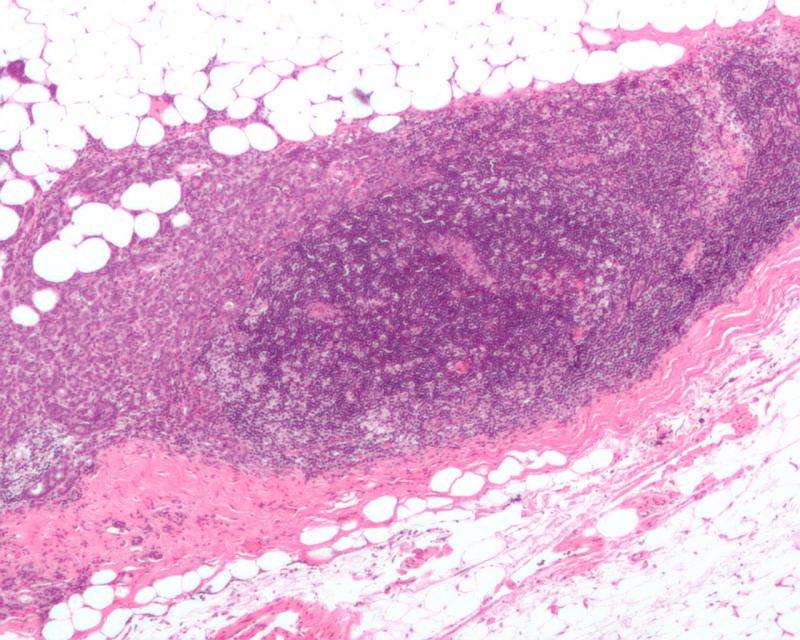Increasing BRCA testing rates in young women with breast cancer

Rates of genetic testing for BRCA1 and BRCA2 mutations have increased among women diagnosed with breast cancer at age 40 or younger, according to an article published online by JAMA Oncology.
Breast cancer is the most common cancer diagnosed in women younger than 40 in the United States. The National Comprehensive Cancer Network guidelines recommend women diagnosed with breast cancer at 50 or younger undergo genetic testing because carriers of BRCA1 and BRCA2 mutations are at increased risk for developing early-onset breast cancer. Assessing a young women's genetic risk after a breast cancer diagnosis can have implications for subsequent treatment decisions.
Ann H. Partridge, M.D., M.P.H., of the Dana-Farber Cancer Institute, Boston, and coauthors described the use of BRCA testing in a group of women diagnosed with breast cancer at 40 or younger and examined how concerns about genetic risk and genetic information affected treatment decisions.
The study included 897 women 40 and younger diagnosed with breast cancer at 11 academic and community medical centers.
A total of 780 of 897 women (87 percent) reported BRCA testing by one year after breast cancer diagnosis (average age at diagnosis 35.3 years vs. 36.9 years for untested women). Only 117 women (13 percent) had not undergone BRCA testing for a mutation when surveyed one year after diagnosis.
The frequency of testing increased over time. Of 39 women diagnosed with breast cancer in 2006, 30 or 76.9 percent reported testing; a slightly lower percentage of women reported testing in 2007 (87 of 124 or 70.2 percent); but the proportion of women tested increased in subsequent years with 141 (96.6 percent) of 146 women in 2012 and 123 (95.3 percent) of 129 women diagnosed as having breast cancer in 2013 reporting BRCA testing, according to the results.
Among the 780 women who had BRCA testing, 59 (7.6 percent) reported a BRCA1 mutation, 35 (4.5 percent) reported a BRCA2 mutation and 35 (4.6 percent) reported an indeterminate result or variant of unknown clinical significance, the results show.
Among the 117 untested women, 37 (31.6 percent) did not report discussing the possibility they may have a mutation with their physician or genetic counselor and 43 (36.8 percent) of the 117 women were thinking of future testing.
A total of 248 (29.8 percent) of 831 patients who were tested and reported a positive or negative result reported that knowledge or concern about the genetic risk of breast cancer influenced their treatment in some way. Among those women, 76 of 88 mutation carriers (86.4 percent) and 82 of 160 noncarriers (51.2 percent) opted for a bilateral mastectomy to remove both breasts. Carriers of a mutation also were more likely to have undergone a salpingo-oophorectomy (ovary removal) than noncarriers.
The authors attribute the high frequency of BRCA testing likely to the fact that most women in the group were insured, educated and treated at cancer centers where comprehensive genetic counseling and testing services were widely available. There is also the possibility that media attention to genetic breast cancer (i.e. the Angelina Jolie effect) may have caused more women to bring up the issue of genetic risk with their physician or genetic counselor.
Additionally, the authors note bilateral mastectomy was still relatively common even among noncarriers "suggesting that many women might choose to remove both breasts because of worries about developing another breast cancer and for peace of mind despite knowing they do not carry a known BRCA mutation."
"Given that knowledge and concern about genetic risk influence surgical decisions and may affect systemic therapy trial eligibility, all young women with breast cancer should be counseled and offered genetic testing, consistent with the National Comprehensive Cancer Network guidelines," the study concludes.
"It is encouraging to see the integration of GCRA [genetic cancer risk assessment] into standard-of-care clinical treatment of breast cancer over the past two decades. The task remains to ensure that the benefits of GCRA reach more individuals and families, including those among underrepresented minorities, with economic disparities, and in low- to middle-income countries. As long as there are growing communities of practice and research collaboration, it won't take another 20 years to get there," write Jeffrey N. Weitzel, M.D., of the City of Hope, Duarte, Calif., and coauthors in a related editorial.
More information: JAMA Oncol. Published online February 11, 2016. DOI: 10.1001/jamaoncol.2015.5941
JAMA Oncol. Published online February 11, 2016. DOI: 10.1001/jamaoncol.2015.5975


















